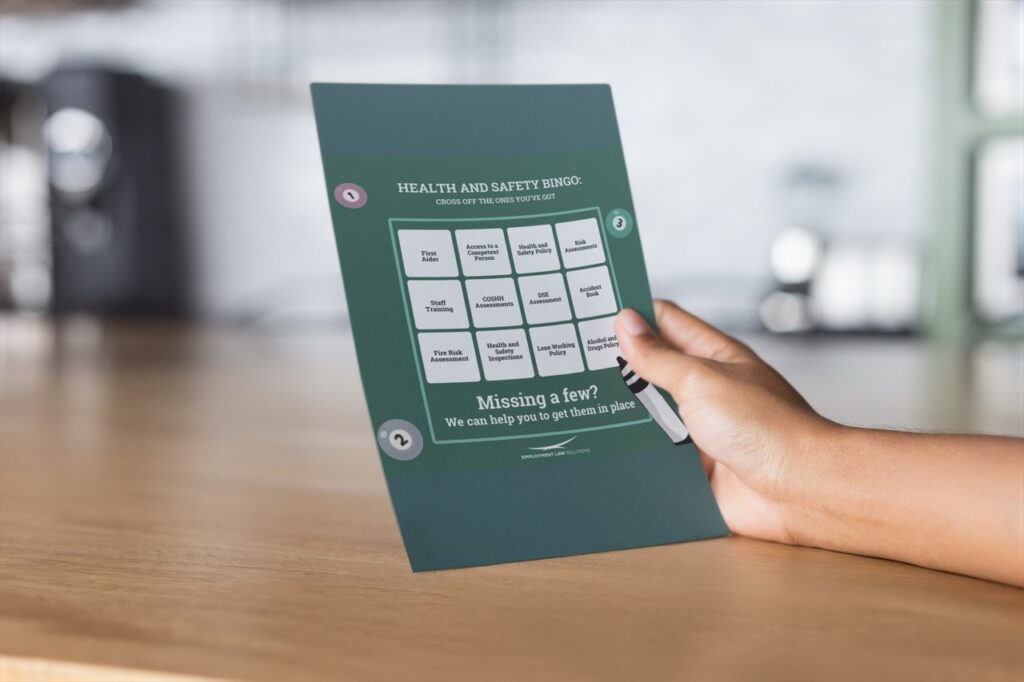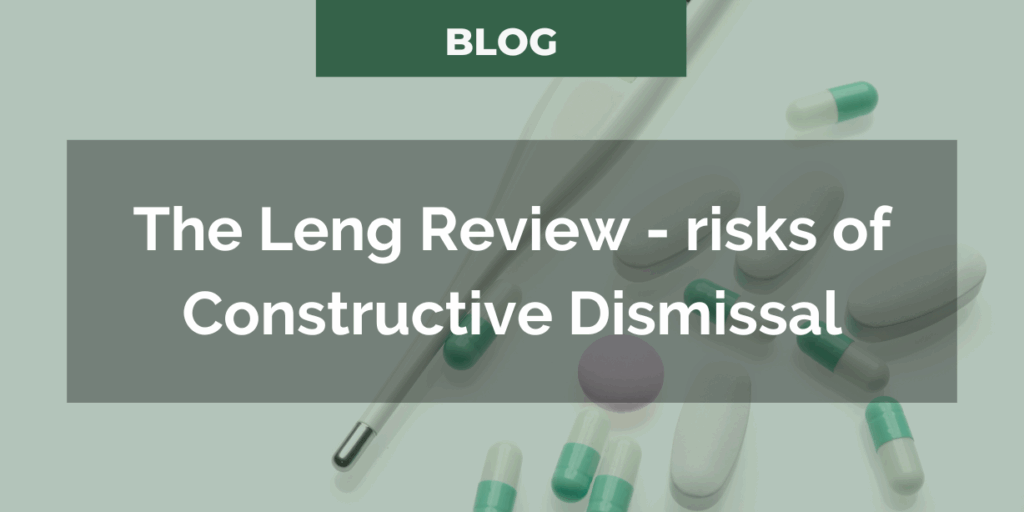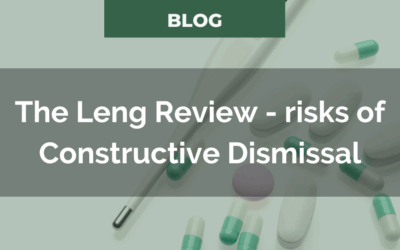General Guidance | Discrimination • October 5, 2018
Mental Health Part 2: What Constitutes A Disability?
Written by Jennifer Ormond
Most employers are aware that disabilities are serious and if not dealt with properly can costs businesses both time and money. Problems often arise around mental health as they are not always understood to be a disability. In employment law we use a different definition to the health care profession, with a much lower threshold; so what is a disability?
A disability is defined in section 6(1) Equality Act 2010 as a physical or mental impairment that has a substantial and long-term adverse affect on a person’s ability to carry out day-to-day activities.
There are three aspects to the definition
Substantial adverse effect?
When considering what amounts to a substantial adverse effect, employers should not compare the differences between two people, instead, employers should look at what the employee cannot do. For example, an employee with anxiety may not be suitable to hold presentations or group meetings but they can still perform many other tasks. The law requires us to take into account a variety of factors including the environment, the effect on the employee and the cumulative effects of the impairment.
Long term?
The law requires that an impairment must last at least 12 months, or, be likely to last 12 months if not the rest of the employee’s life (if this is likely to be less than 12 months) or, that it could return if it is in remission. During the term of the impairment there can be fluctuations in its effect different symptoms present at different times.
Day – to – day activities?
There is no exhaustive list that the law requires employers to consider and an element of discretion is granted but common sense should be applied. Employers should ask the employee is they can carry out normal activities which used to form part of their day-to-day lives.
How can you know the impact of an illness?
With the consent of the employee, employers can approach their GP and ask for a medical report which can assist in understanding the impact of the illness. Employers should be sure to follow capability procedures and treat the employee fairly and with a degree of compassion throughout the process, especially if they have been absent from work.
When an employee has a disability they are entitled to “special treatment” from their employer, check our next blog for details on how to accommodate mental health conditions in the work place.

You might also like…
Health & Safety Bingo! Compliance Made Simple (and Not Boring!)
Health & Safety Bingo is here to prove that compliance doesn’t have to mean boring manuals, endless tick-boxes, or confusing jargon. If you’ve got five or more staff, there are a few essentials you need to cover, but it can be simple, visual, and even a little...
The Leng Review and risks to your business
Major Changes to Physician Associate Roles Following Leng Review: What NHS Practices Need to Know The recent publication of the Leng Review has included recommendations which require significant changes, specifically around the role of Physician Associates. What...
Do I need to do a fire risk assessment?
Fire risk assessments are a fundamental legal requirement in the United Kingdom that could, to be blunt, be the difference between life and death. Understanding your obligations under UK fire safety legislation is crucial for anyone responsible for premises,...







